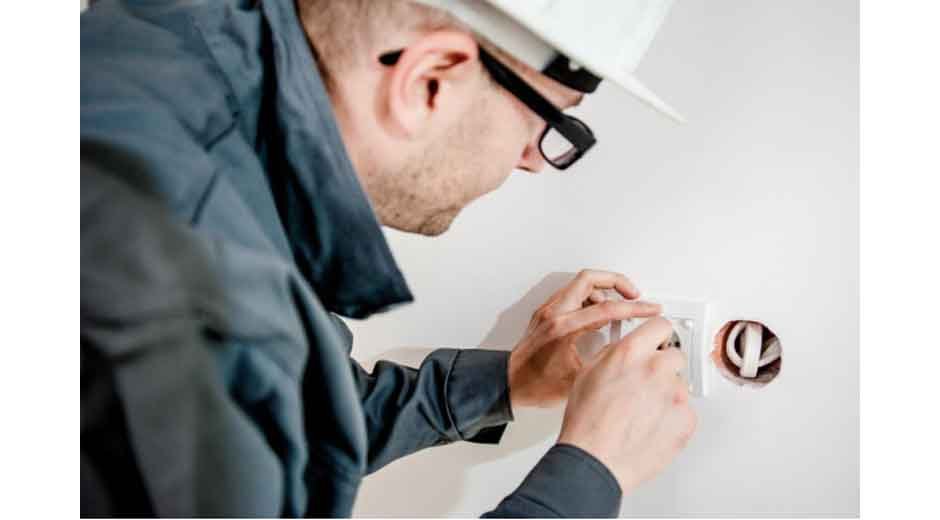Home renovation projects can be exciting, but they can also be overwhelming. When updating an older home or adding a new section, consider key factors. These can affect the safety and efficiency of your electrical system.
Understanding the key electrical factors during a home renovation can help ensure that your upgrades enhance both comfort and home value. By taking the time to look at your electrical needs, you can avoid common issues that could arise later.
Evaluate Your Current Electrical System
Before making any changes, it’s essential to assess your current electrical system. This assessment will help determine what upgrades or repairs are needed. Begin by checking your electrical panel and circuit breakers.
An outdated panel can be a hindrance when adding new electrical fixtures. Most homes require a minimum of 100 amps of electrical service, but larger homes may need more. If your system does not meet these standards, upgrading it should be a priority in your renovation project.
Also, consider the condition of your wiring. Homes built before the 1960s may have cloth-wrapped wires or aluminum wiring, which can be unsafe. If your wiring is in disrepair, you will need to replace it to meet modern standards.
Additionally, inspect the outlets and switches to ensure they are functioning properly. Any outdated or damaged electrical components should be replaced during the renovation.
Planning for Lighting Needs
Lighting plays a significant role in enhancing the ambiance of your home. During your renovation, consider your lighting requirements.
Think about the functionality of each space and how you want it to feel. For example, kitchens benefit from bright task lighting, while bedrooms require softer, ambient light.
Using energy-efficient fixtures can boost your home’s value and lower your electricity bills. Look for LED options that have a long lifespan and use less energy.
Installing dimmer switches can also enhance the flexibility of your lighting and allow for additional ambiance. Don’t forget the outdoor lighting; this adds curb appeal and safety.
Understanding Electrical Codes
During any home renovation, adhering to electrical codes is critical. These codes ensure the safety of electrical systems and protect against potential hazards. Local codes vary, so check with your local building department to understand what regulations apply to your renovation.
Hiring a licensed electrician is advisable because they are knowledgeable about these codes and can help ensure all work is compliant. This not only guarantees safety but can also prevent costly fines and penalties later. Remember, bypassing code requirements during renovations might lead to dangerous situations, making compliance a top priority.
Upgrading Outlets and Switches
As part of any home renovation project, you should consider upgrading your outlets and switches. Modern homes often have more gadgets and devices requiring electrical outlets than older homes accounted for. Adding more outlets can help reduce the demand on existing circuits and avoid overloading them.
Consider including GFCI (Ground Fault Circuit Interrupter) outlets in areas where moisture is present, such as the kitchen and bathroom. These outlets will trip and cut off power if there’s a ground fault, adding an extra layer of safety. If you have a dedicated workspace or home office, more outlets will enhance usability and comfort.
Planning for Smart Home Technology
Smart home technology is becoming increasingly popular and can add significant value to your home. During your renovation, think about how you might incorporate smart devices. Whether it’s smart thermostats, lighting, or security systems, there are many options that improve convenience and efficiency.
Make sure your electrical system can support these technologies. Smart devices often require a reliable Wi-Fi connection and a sufficient power supply. Discuss these plans with your electrician, who can help you integrate smart technology into your home renovation seamlessly.
Consider Future Needs
When planning a home renovation, consider not only your current needs but also your future electrical requirements. Your family may grow, or you may decide to set up a home office later on. Preparing for these possibilities ensures that your electrical system remains functional for years to come.
For example, running additional wiring or installing a few extra outlets now may save you money and trouble in the future. Strategic planning can help avoid the need for extensive renovation work down the line.
Understanding Home Wiring Options
When upgrading your electrical system, familiarizing yourself with different types of wiring can be beneficial. Common wiring materials include copper and aluminum. Copper wiring is generally more efficient and reliable, making it the preferred choice for most homes. However, it is also more expensive than aluminum.
Careful consideration should also be given to conduit types, which are the protective tubes that house wiring. PVC, metal, and flexible conduits each have their advantages and are suitable for various applications. To make informed choices about wiring types and materials, consultation with a licensed electrician is essential.
Take control of your home renovation journey. Consult a licensed Electrician to help guide you through the electrical planning and installation process. Your family’s comfort and safety depend on a well-functioning electrical system.
Safety First: Installing Smoke and Carbon Monoxide Detectors
Your electrical system also plays a critical role in safety features such as smoke and carbon monoxide detectors. Local building codes often require these detectors in specific areas of the home. While renovating, ensure that these safety devices are functional and strategically placed throughout the home.
Consider installing interconnected detectors, which will sound alarms in all units if one is triggered. Doing so can provide an added layer of safety. Regularly check the batteries and functionality of these devices to maintain maximum safety.
Final Touches and Energy Efficiency
As you finalize your home renovation, don’t overlook the electrical details. Installing energy-efficient electrical systems not only benefits your home but can also lead to lower utility bills.
For instance, consider smart thermostats to optimize heating and cooling. Energy-efficient lighting will help reduce electricity costs without sacrificing ambiance.
Lastly, insulation and ventilation related to electrical systems should be a consideration as well. Properly insulating your home will help maintain temperature, alleviating stress on electrical heating or cooling systems.
Electrical Factors: Transform Your Home
Successfully navigating the electrical factors during a home renovation project can greatly increase your home value, comfort, and safety. Considering the electrical aspects early in your planning process will set you on the right path toward a smooth and successful renovation. With careful evaluation, adherence to electrical codes, and thoughtful integration of modern technology, your renovation can be both safe and beneficial.
You can find more useful and interesting articles on our website. Be sure to visit us and read more.










